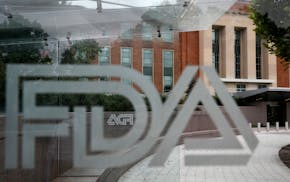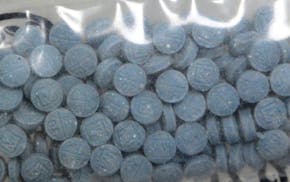A controversial, potentially expensive choice about where in northern Minnesota to build a new pipeline for Bakken crude oil faces a key vote Thursday by state regulators.
The five-member state Public Utilities Commission will decide whether to study alternative routes for Enbridge Energy's proposed $2.6 billion Sandpiper pipeline across North Dakota and Minnesota to Superior, Wis.
The 300-mile route in northern Minnesota has been questioned by two state environmental agencies and advocacy groups because it passes through the Mississippi River headwaters and many isolated wetlands and waterways. The state Pollution Control Agency has urged regulators to consider an entirely different route south of the headwaters and lakes region.
Calgary-based Enbridge says it's willing to consider course corrections for its proposed route through Clearbrook, Minn., west of Park Rapids and east to Superior. But the company says two wholesale reroutes of the Sandpiper project would be longer and more costly. Studying them could delay the project at least three years, the company said in a regulatory filing Monday.
If the commission decides to look at entirely new routes, which it has never done before for a pipeline project, it wouldn't mean Enbridge's original plan is tossed out. But it would trigger months of state-supervised environmental studies, setting the stage for a final PUC decision on the route next year.
Labor groups, which expect more than 1,500 union construction jobs to build the pipeline, are mobilizing against studying new routes.
"Alternative routes merely lead to delays," David Ybarra, president of the Minnesota Pipe Trades, the union for welders and other pipeline workers, said in an interview. "I think some of the opposition will propose routes that are intended to do nothing but delay, with the ultimate goal of killing the project."
Ybarra, who also serves on the Citizens' Board that sets policy for the Pollution Control Agency, said he doesn't believe that agency officials' goal is to kill the project. He said pipelines are the safest way to move crude oil, and a rational alternative to the increasing number of oil trains.
Environmental groups, climate activists and lake associations have lined up to oppose Enbridge's original pathway or the pipeline entirely, and most of the more than 1,000 written comments have been critical.
U.S. Rep. Rick Nolan, D-Minn., also has weighed in, saying in a July letter to state officials that he supports the project, but it should be built on an environmentally safer, alternate route.
"The sandy, porous soils along the proposed route are particularly vulnerable to pollution in the event of a pipeline spill, which could significantly jeopardize the quality of our lakes, drinking water and agricultural irrigation," Nolan said.
The Pollution Control Agency and the Department of Natural Resources have detailed numerous concerns about building another crude oil pipeline through northern bogs and waterways. Nine crude oil pipelines already pass through the region, and Enbridge has talked about building another crude oil pipeline along the same route as Sandpiper.
Landowners and other interests, including a mining company, have suggested more than 50 route adjustments to Enbridge's original plan to avoid natural areas or particular properties. Requests for such course modifications have happened before on pipeline projects, including Enbridge's 1000-mile Alberta Clipper crude oil line from Hardisty, Alberta, to Superior that was finished in 2010.
What's new for the Sandpiper are the two complete alternate routes. The MPCA's suggested southern route would follow Oneok Partners' Viking Gas Transmission Pipeline and Magellan Midstream Partners' refined petroleum lines across the state. A northern route proposed by a citizen would run along roads and through areas with fewer waterways.
Enbridge said the alternatives are 74 miles to 182 miles longer than its original plan, and would cost an additional $185 million to $455 million to build.
Although the commission can take any action, its regulatory staff has recommended studying the 53 less-extensive modifications and the total reroute suggestions. The staff also recommended that Enbridge write a report on its safety record. The company offered to submit such a report to an administrative judge who will review all the route and environmental questions and make a recommendation on the project to the PUC.
David Shaffer • 612-673-7090 • @ShafferStrib

Remnants of bird flu virus found in pasteurized milk, FDA says
Timberwolves dispute between Taylor and Lore, Rodriguez over ownership moves to mediation
Tesla 1Q profit falls 55%, but stock jumps as company moves to speed production of cheaper vehicles
Montana minor league baseball team in dispute with National Park Service over arrowhead logo
